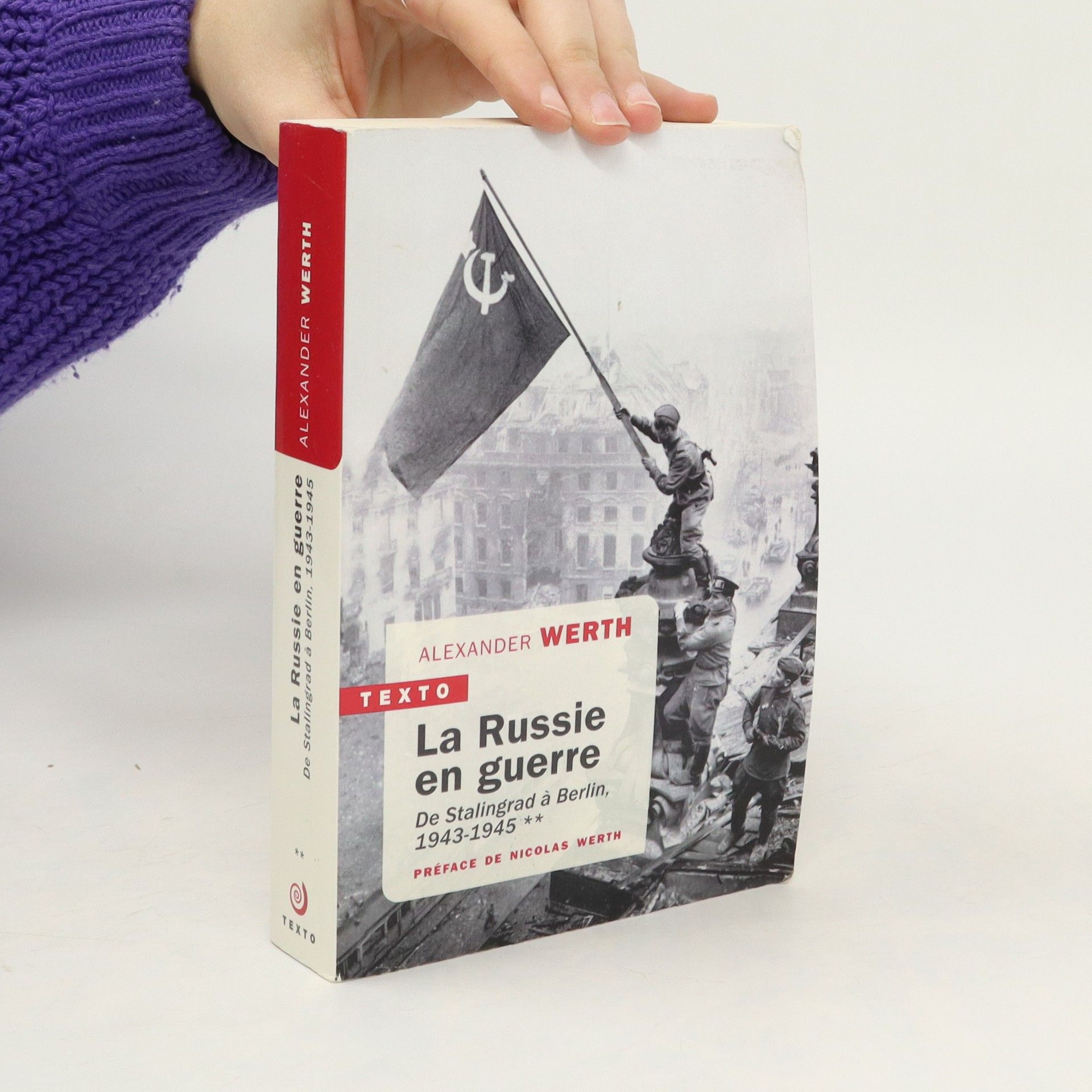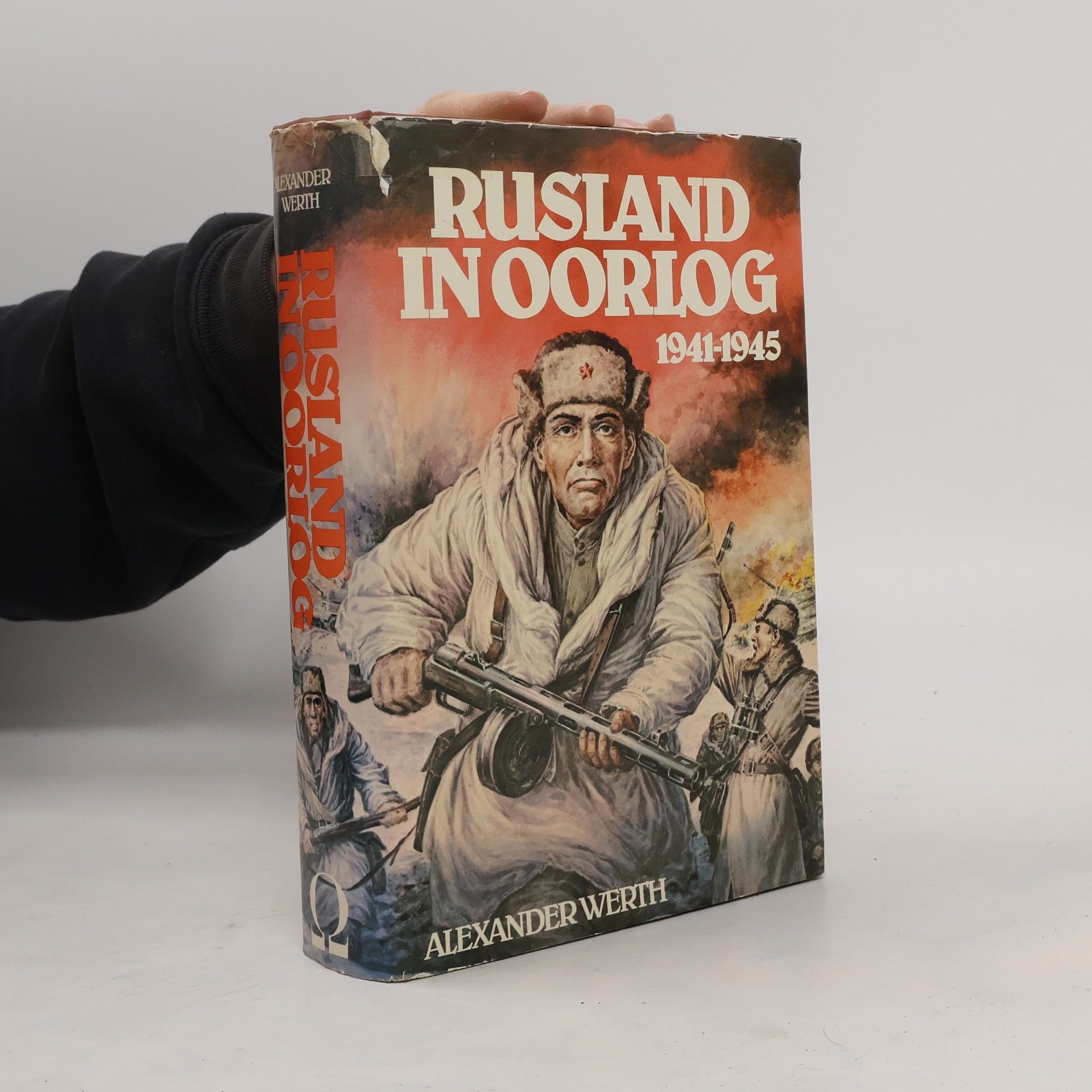Le second tome de La Russie en guerre s'ouvre sur les premières lueurs de la victoire. Après la bataille de Stalingrad s'engage une fantastique campagne militaire qui conduira les troupes soviétiques jusqu'à la victoire finale à Berlin. Apre triomphe, toutefois : les pertes humaines sur les champs de bataille sont terribles, les Leningradois ont enduré un long blocus et, à Maidanek, c'est l'atrocité du génocide qui est découvert. Autant de souffrances qui constituent l'expérience de guerre vécue par toute une nation, militaires et civils confondus.
Alexander Werth Book order (chronological)
Alexander Werth was a Russian-born writer, journalist, and war correspondent whose work focused on France in the prewar period and on Russia during World War II, particularly the Battle of Stalingrad and the Siege of Leningrad. His fluency in Russian, combined with his credentials as a BBC correspondent, granted him unparalleled access to wartime Soviet life. Werth's reporting offered a candid, behind-the-scenes look at the era, providing readers with a deeply informed perspective on pivotal historical events.

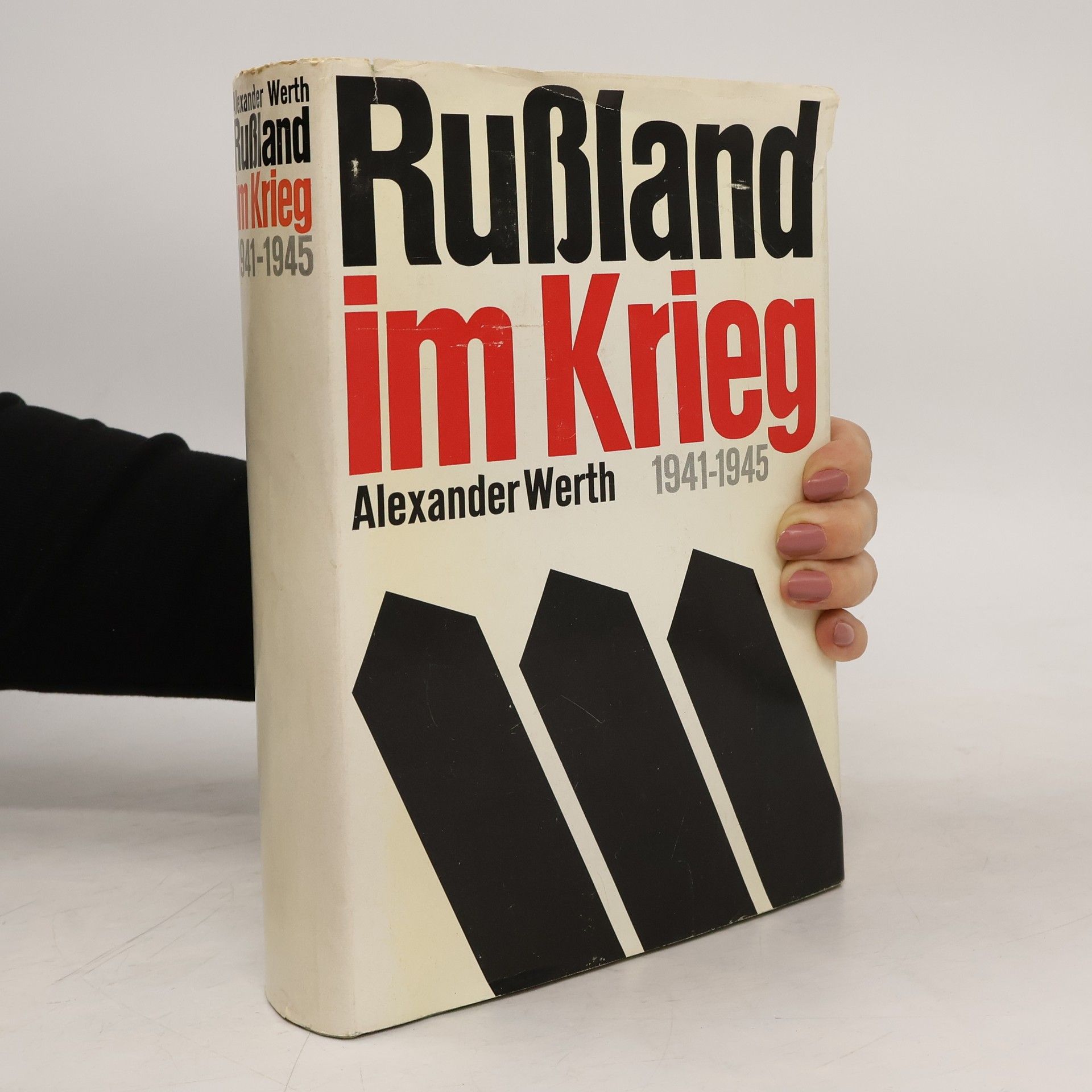

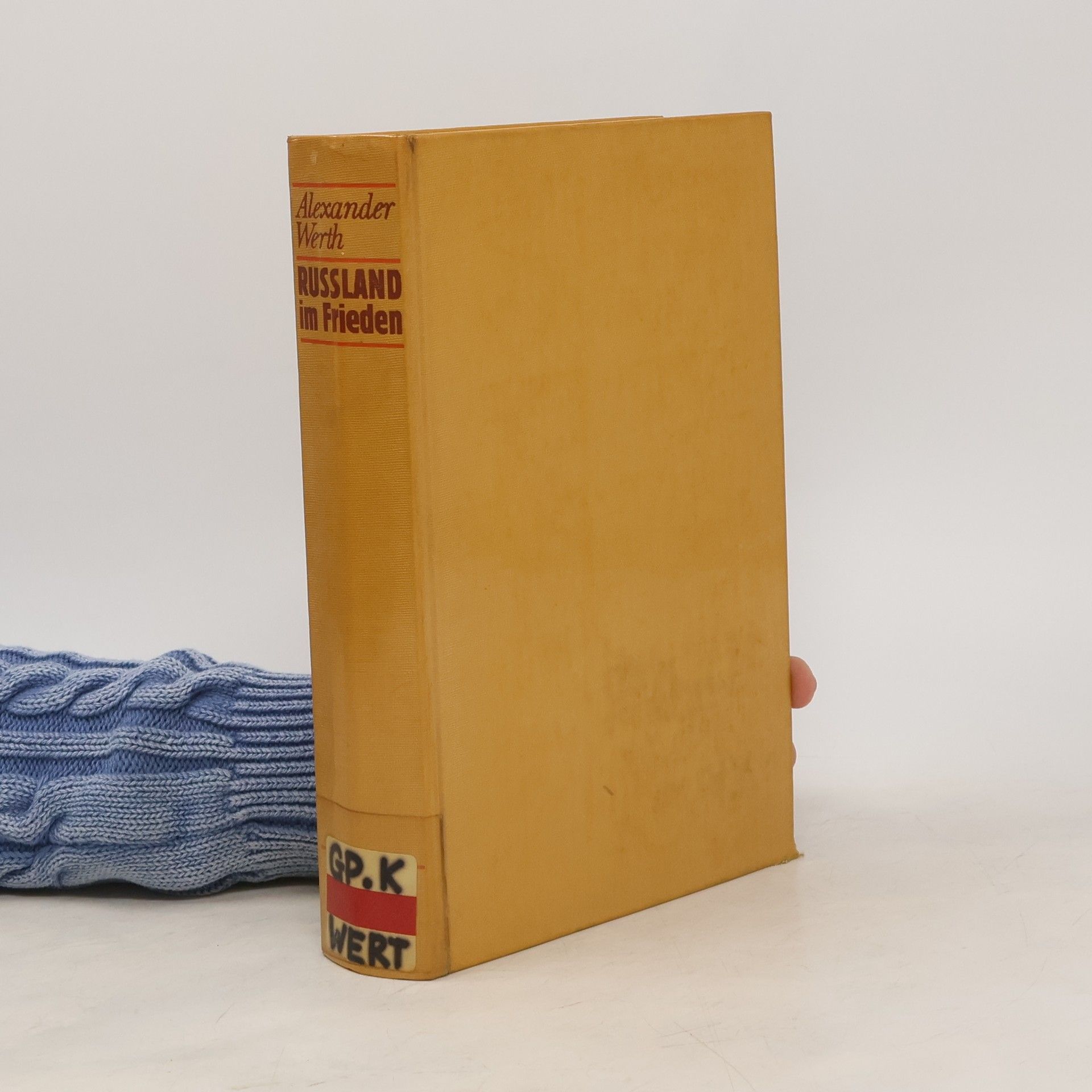

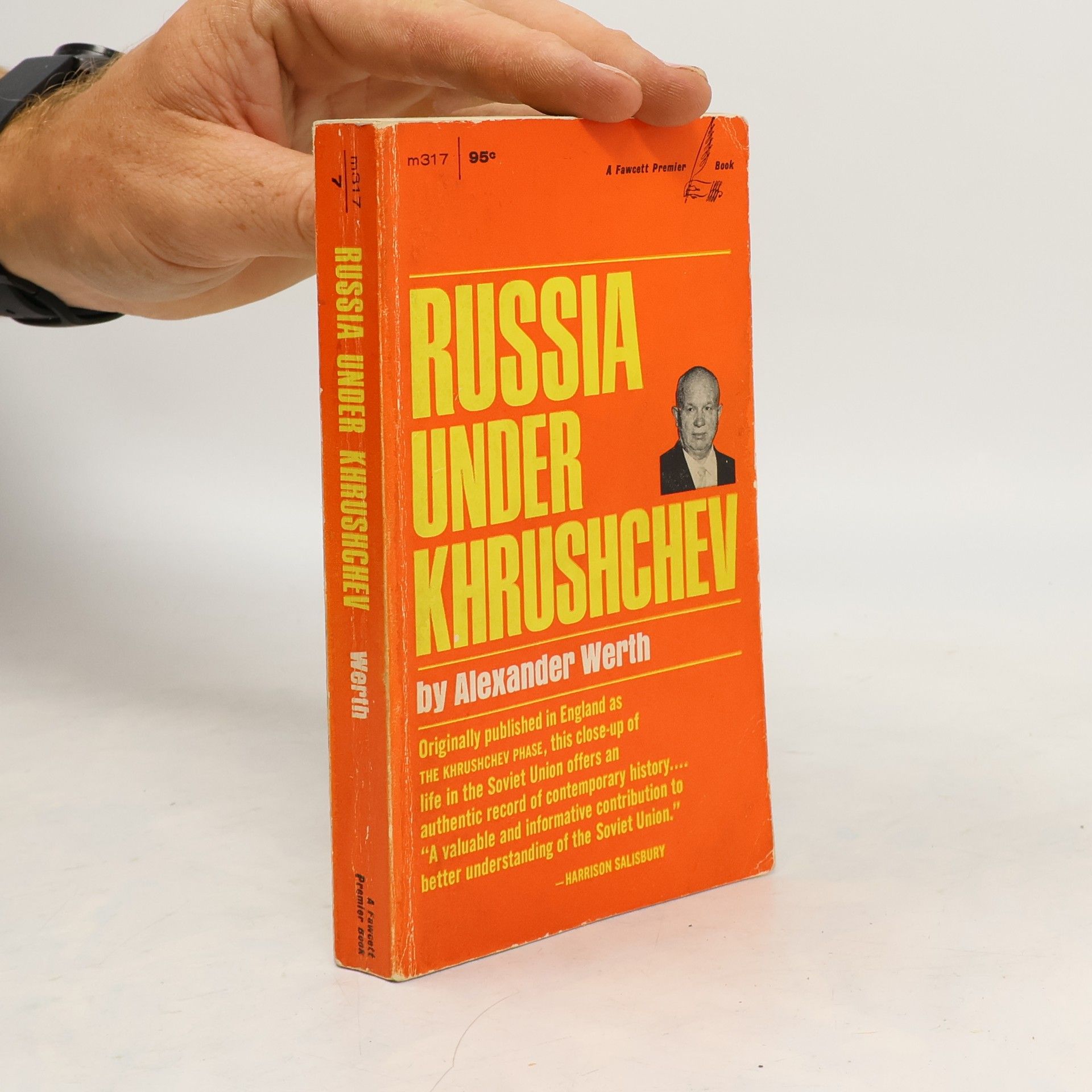
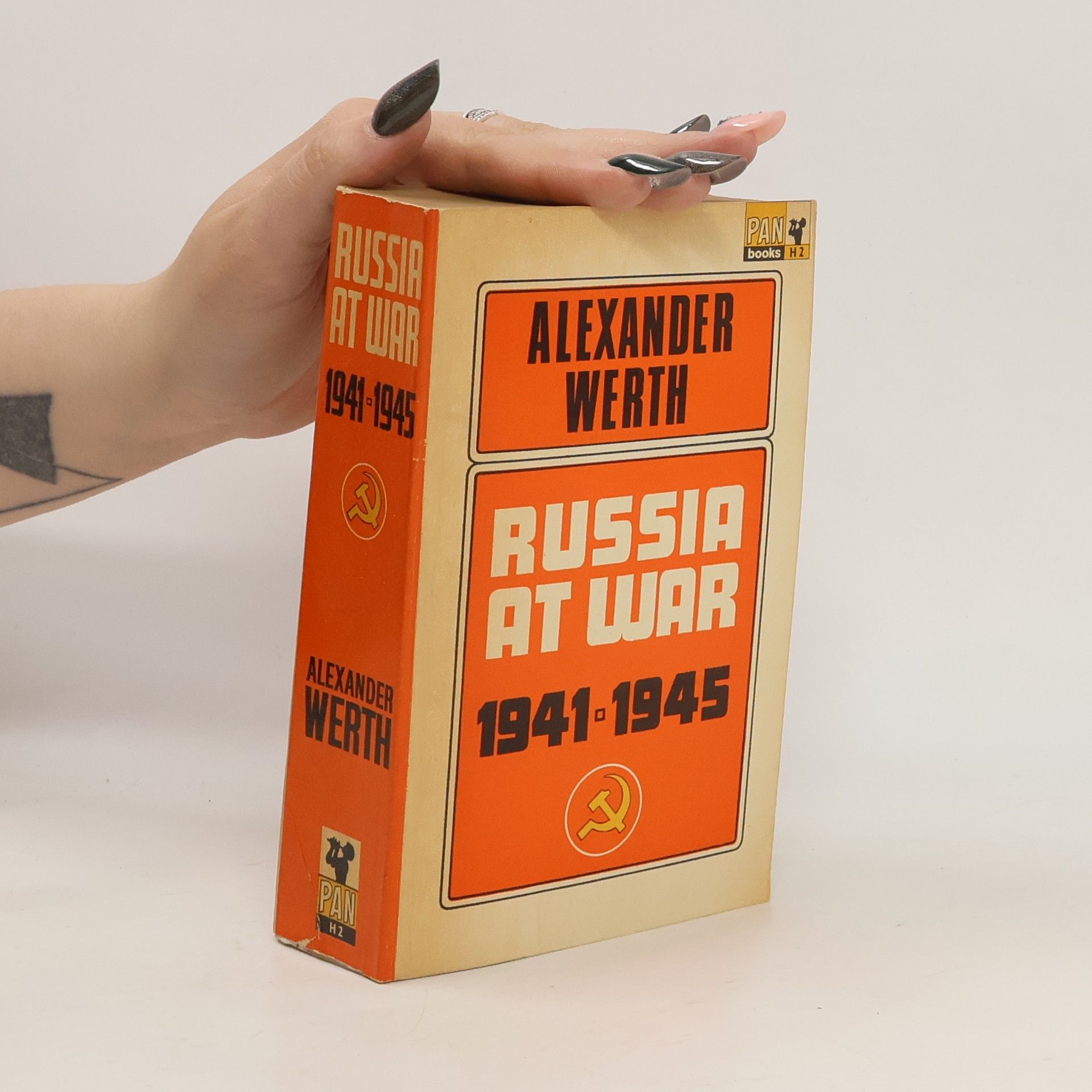
Morphosyntax und Pragmatik in Konkurrenz
Der Definitartikel bei Personennamen in den regionalen und historischen Varietäten des Deutschen
Im Deutschen gibt es eine ganze Reihe sprachlicher Phänomene, die eine Redundanz dahingehend aufweisen, dass scheinbar gleiche grammatische Funktionen formal mehrfach kodiert werden. Dies ist z. B. beim Definitartikel am (inhärent definiten) Personennamen der Fall ("der Peter", "die Merkel"), der Thema dieses Buches ist. Mittels qualitativer und quantitativer Datenanalyse wird untersucht, in welchen Verwendungskontexten der Artikel bei Personennamen in den historischen und rezenten Varietäten des Deutschen wie häufig auftritt und welche Funktionen er dabei erfüllt. Zentraler Befund ist, dass der onymische Artikel hier varietätenabhängig unterschiedliche sprachliche Funktionen zum Ausdruck bringt. Diachron zeigen sich die Unterschiede in den Funktionsweisen in einer zunehmenden Generalisierung und Entpragmatisierung der Artikelverwendung, wie sie in ähnlicher Weise auch für die Grammatikalisierung des Definitartikels im Deutschen angenommen wird. Diatopisch haben wir es hingegen aus der Perspektive des Sprachgebrauchs mit einem strikten Gegensatz von pragmatischer und syntaktischer Artikelverwendung zu tun, der in den Bewertungen der Sprachteilnehmer/innen allerdings nicht konsequent aufrechterhalten wird.
Beschrijving van de gebeurtenissen aan het front en in diplomatieke kringen.
De Stalingrado a Berlin
Rusia en la guerra (II)
De la invasión a Stalingrado
Rusia en la guerra (I)
Autor nerozvíja len obrazy bojov a strategické plány všetkých zúčastnených strán, ale nazerá aj za kulisy diplomatickej scény, kde sa pripravovalo povojnové usporiadanie a rozdelenie sveta. A.Werth sa citlivo a objektívne zaoberá problémami: ako je problém Poľska a ostatných štátov, ktoré sa dostali do sféry sovietskeho vplyvu, vzťahov medzi Stalinom a jeho vojnovými spojencami, de Gaullovho postavenia, z ktorého vyplynuli mnohé stránky jeho neskoršieho konania, problém Japonska v poslednej fáze vojny, ako aj povojnové obdobie a jednotlivé osudy mnohých drobných ľudí...
Od paktu po Stalingrad
Rusko vo vojne 1941 - 1945. 1. časť
